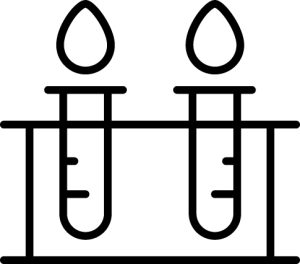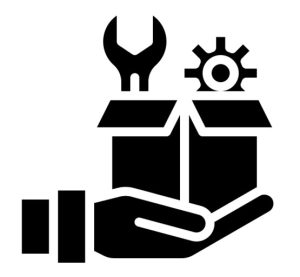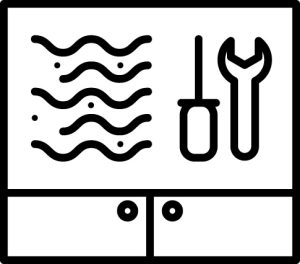FEASIBILITY STUDIES

In the field of shellfish purification, the new regulations and the new EC directives identify different types of establishments, ranging from CSMs (Molluscs Expedition Centers) ai CDM (Molluscs Purification Centers), each of which is then characterized by a series of specific and peculiar requirements, which must be modulated according to the site and the facilities available. Aquaquality is able to produce reliable feasibility studies taking into consideration all the surrounding variables, and also providing a rough evaluation of the yields based on the estimated costs for the purchase and management costs. Aquaquality also has an agreement with financial agencies in order to offer plant financing services through instrumental leasing or long-term rental formulas with final redemption of the plant.
BUROCRATIC AND REGULATORY ASSISTANCE

The making of a CSM (Shellfish Expedition Center) or a CDM (Molluscs Purification Center) requires a series of opinions and authorizations from the competent authorities for the area ranging from the usability and correct use of the property, any concessions for the withdrawal of water from the plant, to the differentiated authorizations for unloading according to the receiving body (public sewer, surface water body, direct discharge into the sea), to the preliminary investigation of the file with the competent Veterinary Service of the local USL Company, which will then interface with the Ministry of Health for the issue of the relative EC stamp. Aquaquality is able to intervene in each of these requirements, treating the file directly with the competent body until its complete development and release of the opinion or specific authorization; in this way the entrepreneur intending to carry out the CSM or CDM is relieved of all the burdens in terms of time and contacts with officials, and can focus directly on the activity to be carried out, leaving the bureaucratic and regulatory assistance completely to Aquaquality. In the event of a possible request for regional or community funding (EMFF or other measures), Aquaquality is able to handle the entire financing procedure until the final result is reached.
PLANT DESIGN

The design of a CSM or CDM plant is essential for its subsequent construction (find out more button that links to the design page)
PLANT MANAGEMENT PROTOCOLS – H.A.C.C.P.

The new community regulation, which must be followed for any activity relating to live bivalve molluscs, it is extremely varied and complex.
It is based on a number of EC regulations of which, right away, the most important are reported:
- EC regulation 178/2002 of the European Parliament and the Council (establishes the general principles and requirements of food law , establishes the food agency and establishes procedures in the field of food safety)
- EC regulation 852/2004 of the European Parliament and the Council (on the hygiene of food products)
- EC regulation 853/2004 of the European Parliament and the Council (lays down specific hygiene rules for food of animal origin)
- EC regulation 854/2004 of the European Parliament and the Council (establishes specific rules for the organization of official controls on products of animal origin intended for human consumption)
- EC regulation 882/2004 of the European Parliament and the Council (on official controls aimed at verifying compliance with feed and food law with animal health and welfare rules)
- EC regulation 2073/2005 of the Commission (on microbiological criteria applicable to food products)
- EC regulation 2074/2005 of the Commission (laying down detailed rules for the implementation of certain products referred to in the regulation 853/04 and regulations 854/04 e 882/04, derogation from the regulation 852/04 and modification of the regulations 853/04 e 854/04)
- EC regulation 2076/2005 of the Commission (which establishes the transitional provisions for the implementation of the regulations (THIS)853-854-882/2004 amending regulations no. 853-854(THIS)/ 2004)
These regulations impose on the establishments that carry out purification (CDM) or even to simple shipping centers (CSM) a series of essential tasks for the proper conduct of the business, ranging from the application of HACCP procedures, the preparation of the D.D.R. (registration documents required for batch traceability), company self-control through chemical and microbiological analyzes, to the training of the personnel involved in the work. The new regulations also provide for a series of sanctions, both of an administrative and criminal nature e, in the case of non-compliance of a serious nature, the immediate closure of the business. The control of the companies entrusted to the Veterinary Services of the Prevention Departments of the Local Health Units competent for the territory (as well as to the NAS of the Carabinieri or other control bodies), who now carry out it extensively, to protect public health.
Aquaquality creates plant management protocols in order to be fully compliant with the law, fully customizable according to the size and peculiar characteristics of the company concerned, also providing for self-control analyzes through affiliated laboratories and providing real "packages" of services tailored to the customer and at costs that are absolutely compatible with the management of the activity.
SYSTEM WATER

The plant water is probably the section in which the controls and analytical determinations must be more accurate, precise and sensitive, to extensively assess the risk associated with the health of fish fauna.
The first operation to be carried out is the determination of all the chemical-physical parameters of interest; naturally the analyzes must be accompanied by a suitable and complete interpretation of the data obtained, also taking into account the possible interactions or synergies between correlated values of different parameters The determination of the critical points of the system is also of fundamental importance, of those points where for a variety of reasons, which can be extremely different and unique to each plant, some operations, if conducted incorrectly, they can cause sometimes irreparable consequences for the quality of the water.
In the end, the general assessment must indicate all the measures to be taken for the improvement and control of the plant water quality for the purpose of risk prevention.
PLANT MAINTENANCE

Aquaquality is able to offer maintenance and technical assistance services on both purification and shellfish storage and fish farming systems.. The services are customizable and modular according to the customer's needs.
- Technical assistance
- Scheduled maintenance
- Maintenance on Request
- Plant Operation Manuals
- Plant Optimization
ANALYSIS AND REMEDIATION FOR BASINS AND WATER BODIES (AQUACULTURE, SPORT FISHING)

Aquaquality is able to carry out all analyzes, and of the parameters directly measurable in the plant or on the basin in question, such as dissolved oxygen or temperature, that the determinations by sampling and laboratory analysis [pH, suspended materials, BOD5, total phosphorus, nitrites, phenols, hydrocarbons, total and non-ionized ammonia, total residual chlorine, surfactants, heavy metals, to mention those provided for in the Annex 2, Section B, Table 1 / B of D. Lgs. 152/06 (General criteria and methodologies for the detection of qualitative characteristics, for the classification and computation of conformity of surface fresh waters suitable for the life of salmonid and cyprinid fish)] using approved and ISO certified laboratories for total quality.
It's important, in the case of lakes or basins of appreciable depth, make the water columns (a series of analyzes at different depths), especially the temperature and dissolved oxygen, in order to correctly evaluate any situations of stratification of the basins.
In some cases, and for particular types of systems, it is then necessary to carry out the determinations that evaluate the algal productivity and the risk of having sudden and unwanted blooms; these determinations are carried out with specific methods, such as the light and dark bottle test and the TSI measurement (Trophyc State Index or Trophy State Index).
The analyzes therefore have diagnostic power to indicate the best management strategies, both for aquaculture plants and in the water basins of interest.
INDUSTRIAL AQUARIUM MAINTENANCE

ORDINARY MAINTENANCE
- CHECK AND CLEANING THE BIOLOGICAL FILTER
- CHECKING AND CLEANING THE CARTRIDGE FILTER
- WATER PUMP CONTROL
- CHECK UV LAMP
- OZONIZER CONTROL
- TEMPERATURE CONTROL
- TANK LEVEL CONTROL
- ELECTRICAL SYSTEM CHECK
CHEMICAL ANALYSIS, PHYSICAL AND MICROBIOLOGICAL OF WATER
- TEMPERATURE
- SALINITA’
- DISSOLVED OXYGEN
- pH
- TOTAL AMMONIA
- SWABS AND MICROBIOLOGICAL SAMPLING
ACTIVATED SEA WATER
- SUPPLY OF NATURAL SEA WATER
- ACTIVATED AND MICROBIOLOGICALLY CONTROLLED
- CERTIFICATION OF STERILITY
